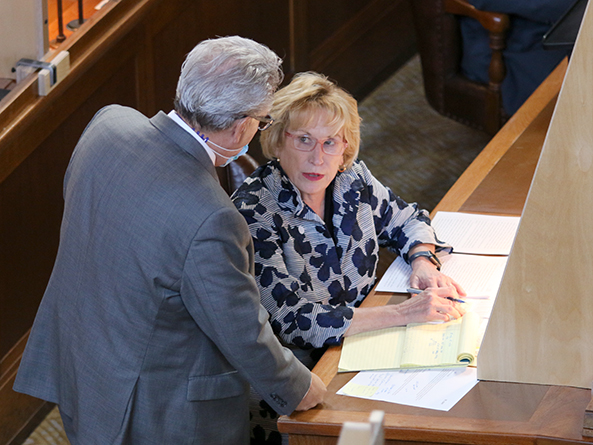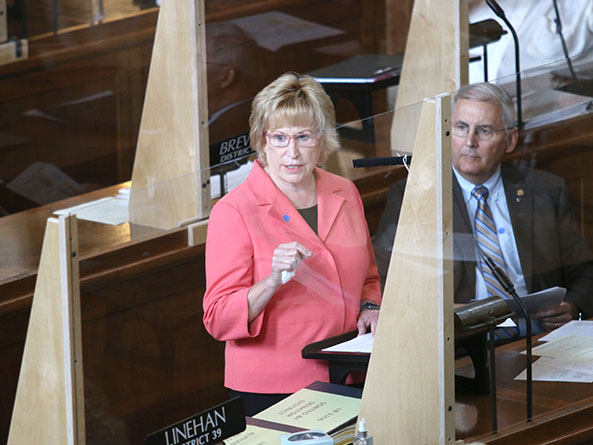Only three days remaining in Nebraska legislative session. Grand compromise near on property tax relief.
State Director Bob Hallstrom reports from Lincoln on the small-business agenda for the legislative week ending August 7.
Lawmakers adjourned for a long, four-day weekend recess on Thursday, following a contentious week of floor debate. Only three days remain in the 2020 legislative session, with Tuesday marking the last day that a bill can be amended and advanced in time to receive final approval from the Legislature.
Property Tax Relief Advances
A “Grand Compromise” on property tax relief and economic development incentive measures pending before the Legislature surfaced this week and was debated and advanced on Wednesday afternoon. The compromise would provide modest property tax relief initially but could eventually defray about 18% of property taxes paid to support K–12 schools, dependent on future tax revenue growth. The measure (Legislative Bill 1107) would also delay some spending on a new business incentive program (ImagiNE Act) and postpone the payment of $300 million toward a $2.6 billion UMMC project until the 2025–26 Fiscal Year.
As amended, LB 1107 would retain the current Property Tax Credit Program, at a minimum level of $275 million a year in state tax credits, and would create an additional state tax credit, in the form of a refundable income tax credit against individuals and entities property tax bills for local schools. To fund the income tax credit, which is estimated to provide a reduction of approximately 6% on individuals and entities tax bills for local schools in the first year, $125 million would be set aside for this purpose. In subsequent years, the fund would increase based on the growth of state tax receipts, with half of the revenue increases exceeding 3.5% per year devoted to the new Nebraska Property Tax Incentive Act until the state’s Cash Reserve Fund reaches $500 million. Once the state’s Cash Reserve Fund reaches $500 million, all of the increases exceeding 3.5% per year would be devoted to the Property Tax Incentive Act. Upon the credit fund reaching $375 million, the fund would increase each year by the percentage increase in statewide property valuations, with the state being obligated after five years, to maintain the tax credit program at a level of $375 million, regardless of the increase in tax receipts.
With respect to the economic development incentive portion of the bill, the ImagiNE Act – the replacement for the Nebraska Advantage Act which expires at the end of the calendar year – would be capped at $25 million each year in the first two years, rising to $150 million by year five.
Decoupling Amendment Nixed
During debate on a general “tax bill” (Legislative Bill 1074), debate was conducted to “decouple” the Nebraska Tax Code with respect to some of the tax benefits adopted under the federal CARES Act. Sen. Tom Briese (Albion), who had previously filed an amendment to “decouple” the state from a $250 million tax reduction over three years under the federal CARES Act, withdrew his amendment. However, Sen. Sue Crawford (Bellevue) filed an amendment to “decouple” from federal provisions allowing excess business losses to be carried back bypass-through entities. The amendment would have brought in $82 million in state revenue next year.
After three hours of floor debate, the bill was removed from the Agenda and is not likely to resurface this session.
NFIB contacted numerous senators in expressing its opposition to the Crawford amendment.

Previous Reports and News Releases

